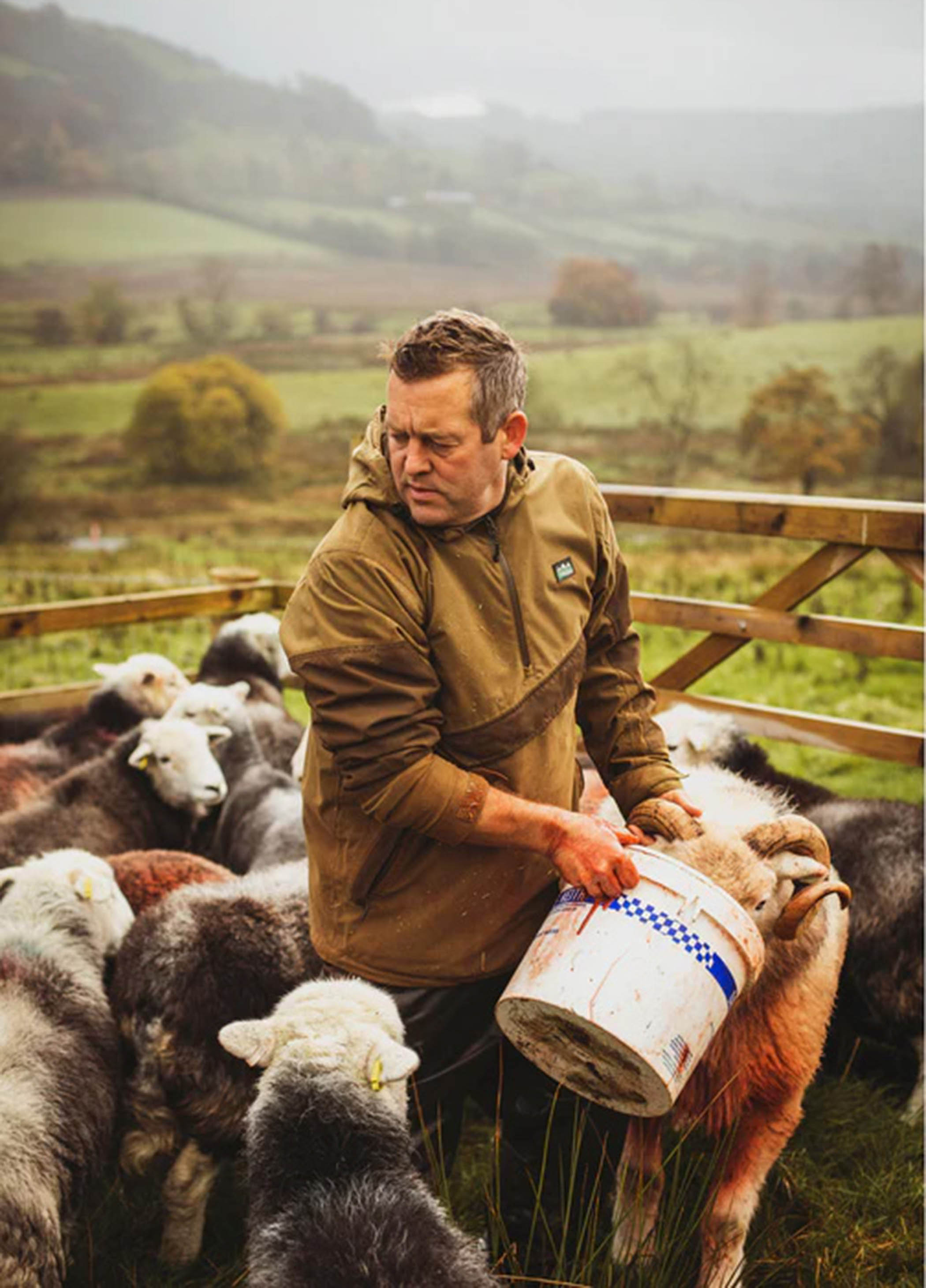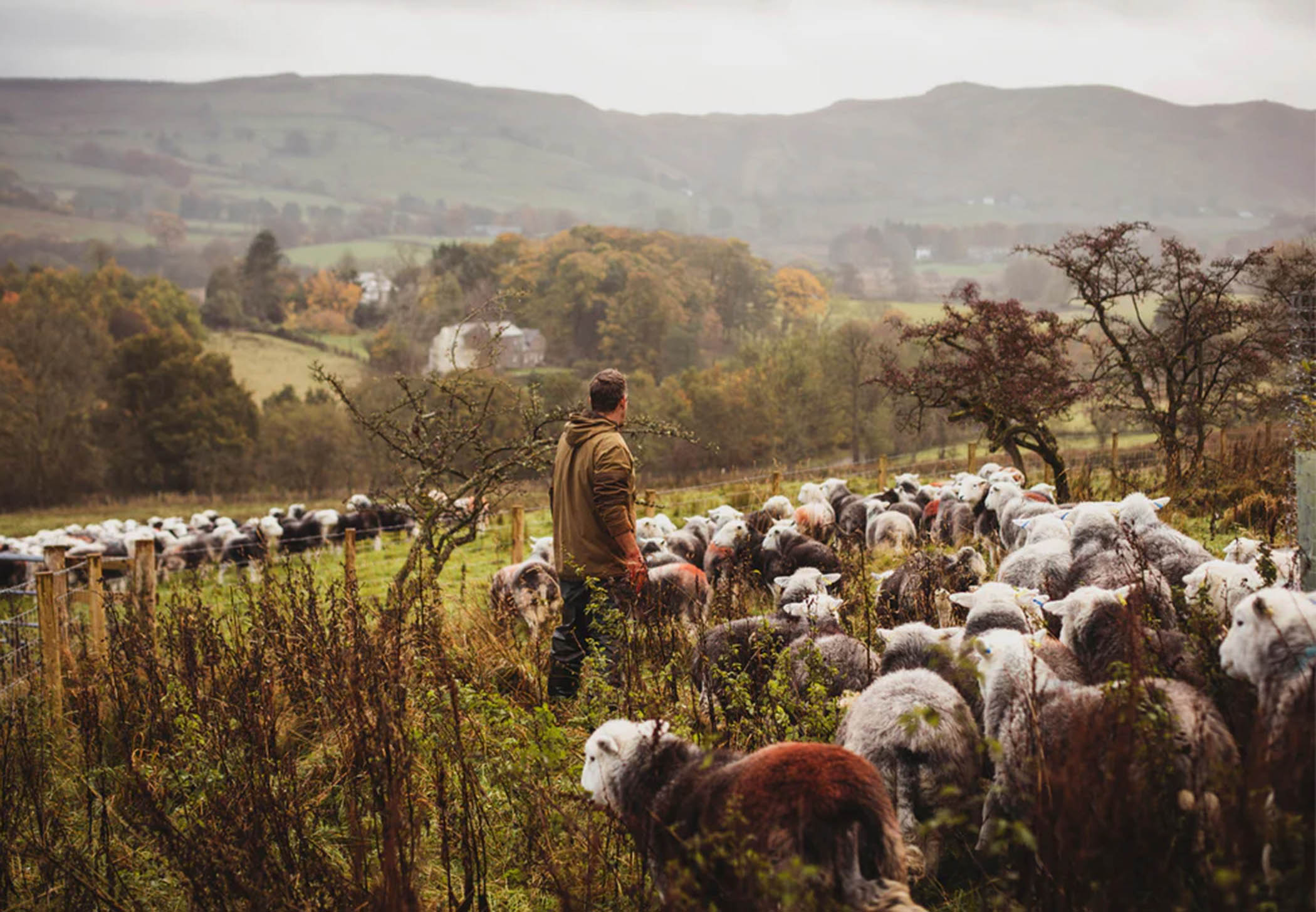Thirty years after William Wordsworth died, the Reverend Hardwicke Drummond Rawnsley walked around Grasmere chatting to the locals and seeking memories of the great poet. To Rawnsley, a late 19th-century man of letters, this must have seemed a rich seam to hack into because Wordsworth had by then been lionised as a giant of English poetry. So who better to speak to about his legacy than the working people who had featured in the poems?
There were a couple of problems with the endeavour: the locals had to be older than 40 to have overlapped, even in their childhood, with the elderly Wordsworth, and they had to have known who he was. Comically, Rawnsley struggled to find any memories of Wordsworth and his friends. Barely anyone he met seemed to give a damn about the greatest of the Lake Poets. Rawnsley began to sense that there were two cultures in the Lake District: that of the locals; and that of the poets, and the visitors they inspired. These two cultures seemed to exist in parallel, but to be barely aware of each other.
Rawnsley speculated that as Wordsworth became a man of some importance, he had stopped mingling much with shepherds and blacksmiths, the rural workers who had peopled his youth and his memories. He never went in their homes, or to the places where they worked, and only rarely talked to them. The few remembered conversations were of an oddball wandering about with his sister in tow, and what he’d said to the locals had seemed strange. He’d told them they shouldn’t whitewash their houses or that they had built their chimney in the wrong style. The people of Grasmere, it seems, didn’t care much for Wordsworth, his writing, or his fame.
I grew up in such a Lake District farming family, from a valley not far from those that Wordsworth wrote about. My dad would groan every bank holiday at the bad drivers on the roundabouts at Penrith as he went between our flocks of sheep and herds of cattle, and would ask rhetorically: “Who in God’s name encouraged all these idiots to come and clog up our roads?”
I never heard the great poets’ names – Wordsworth, Coleridge, Southey or Lamb – come from anyone’s mouth, other than at school. I wondered what the fuss was about, these “great dead white men” who pondered on clouds and daffodils and mountain walks. I was, of course, determined to dislike them. As a young writer, I wanted to seize my dad’s frustration and run with it, tearing up the 18th- and 19th-century “discovery of the Lake District” narrative. I’d tell everyone that this was the kind of cultural imperialism that posh white people could no longer get away with. I was in my 30s before I paid enough attention to the poets’ work to begin to see that I was not being entirely fair, and that they represented complex legacies, some of which benefited and shaped my world.

James Rebanks on his sheep farm in the Lake District
We tend to sift through literature for the age we live in, raiding it for the bits that comfort or speak to us, and ignore the rest. In the age of growing affluence, after the second world war, with many getting cars and going on holidays for the first time, people took the elements they wanted from the Lake Poets: being in nature, escaping to the hills, and feeling like it was there just for them. They found a sense of ownership in Wordsworth’s claim that the Lake District should belong to everyone with a heart to feel and eyes to see it. Millions could cultivate the right sensibility; owning whole landscapes simply by looking down on these valleys from the mountains and loving what they saw. Romanticism fed this. We could all be like Wordsworth and his friends.
My mum and her family made the trek up the M6 in their first car, in the 1960s, to enjoy this hard-won freedom, revelling in things that had been denied previous generations of her cotton-mill worker, often impoverished, undersized Lancashire family. The freedom of the Romantics was a precious gift for them, an escape of the mind and the body from grimmer versions of the north. People like my mother’s family wanted to walk across the fells, rest by the lake or row a boat beneath the very same crags the young Wordsworth had. And they got an even more pared-back set of guides from Alfred Wainwright that cut the locals almost entirely out of the story in favour of the landscape that was now theirs, first as a national park and later as a Unesco world heritage site.
I am a product of this Romantic culture. Not just as a scribbler of words, but biologically. When my mum left home as a teenager, she came to work for the Outward Bound Trust in the Lakes, and then met my dad. The poems behind that culture are a tangle of threads, some good, some bad, some hard to judge. They taught the English to “love nature”, and shelves full of books about the same subject now attest to that. They profoundly changed the way many people thought about beauty, not least our most rugged landscapes. They put the Lake District at the heart of the English literary imagination. They taught us what to do with our leisure time: no local ever walked fells while daydreaming in the deeper past. And they changed how we thought about childhood, as a time of innocence and formation before we are corrupted and numbed.
By the time I was a kid in the 1980s, the Romantic vision of the Lakes had been absorbed almost entirely into how the British (and many others around the globe) viewed landscapes.
A summer working in an office in London, as the century turned, killed off my last irritation about other people needing these things from our landscape. After a few weeks of staring through glass at concrete, I wanted my own Romantic escape back to the north. I went home and began to read the Lake Poets properly for the first time. There had been a forgetting in the 20th century about the themes of their work. The best poems came from their youthful idealism meeting the hardbitten realities of the north. The poems and other writings are full of what can only be described as political beliefs, and radical ones for that time. They were writing against an increasingly industrial society, in which political power was held by the rich, landed and mercantile class, who often only served their own interests. They wrote about social injustices such as extreme poverty, with poems full of references to beggars and other rural people who had fallen on hard times. In that respect, they would prepare the way for the more compassionate politics that led to the welfare state. To be intelligent and British was to see poverty in a wealthy country, and feel outrage.
Newsletters
Choose the newsletters you want to receive
View more
For information about how The Observer protects your data, read our Privacy Policy
Wordsworth and his friends first came together against the backdrop of revolution in France and persecution of dissent by the nervous establishment of Britain. The group attracted the attention of the authorities, who were aware of Wordsworth’s time in revolutionary France. These were the punks of their day, daring to say and do things that made others uneasy. They came together like teenagers starting a band. William and his sister Dorothy, Coleridge and Southey, all a bit broke, unemployed, and yet strangely confident that they had something to say that might matter, while being comfortably ensconced in other people’s houses. They hung out alternating between moments of creativity and youthful boredom. And from those conditions came their brilliance. They found a way to be radical in the most rural of places, Somerset and the Lake District.
We don’t think of rural places as being radical, but we should. And we need to read those poems with the tingle of excitement of knowing they once upset stuffy old people. The preface to Wordsworth and Coleridge’s Lyrical Ballads lays down some beliefs that changed the course of literature: that ordinary life was a vital subject for poetry; that everyday language was appropriate for poets; that feelings were the stuff of poetry more than action or plot, and that such feelings could be sought and found in places of tranquillity. It was a break with what came before, and the beginning of processes that are still unfolding to this day. I have learned to be proud that this happened over the hills from me, a few short miles away. These fells and valleys are not a tame place that exists to serve and soothe; they are their own places, with their own communities and their own values.
This place I call home has again and again stood against what was being promoted by southern Britain, or the industrial north. And we need to push back again, because we live in an age of ecological collapse, the climate crisis and the accumulation of wealth and power that would make anyone before this age gasp – a love of nature, or a questioning about how we live in it, are not peripheral issues; they are among the biggest questions we must now grapple with. Our effect on the planet is now so great, everywhere, and so all-affecting that we have created a new epoch: the anthropocene. We, in wealthy countries, now consume several times more resources per person than the planet can sustain, if everyone else did the same. To pay attention to nature, to love it, and to think deeply is the great subject of our age. I believe that we, in “backwards” places, at the edge of things, often retain older values and ways of seeing. The edge is the place from which resistance is mounted.
If that sounds improbable, remind yourself that every national park, every protected piece of landscape on earth, owes a little something to the Wordsworths and their friends. They were among the first to dream that such a kind of ownership was possible. When Wordsworth wrote his Guide to the Lakes in 1810, he described the valleys he knew as a “perfect republic of shepherds and agriculturalists”. In his eyes, it was a community that had shaped a landscape, and had been shaped by it in turn. A people with attributes and values he admired, a model, with less hierarchy of wealth and class, for another kind of England. I believe something similar. The answers to our broken and corrupted age won’t come from the centre, from the rich and powerful, or from business-as-usual, but they may come from the places and people at the edge, off the beaten track, from those least corrupted by our vices, and from our listening to what they have to say.
The Lake Poets, introduced by James Rebanks, is published by Notting Hill Editions (£15.99) on 4 November. Order a copy at observershop.co.uk for £14.39. Delivery charges may apply.
Photographs by Heather Birnie for TOAST


